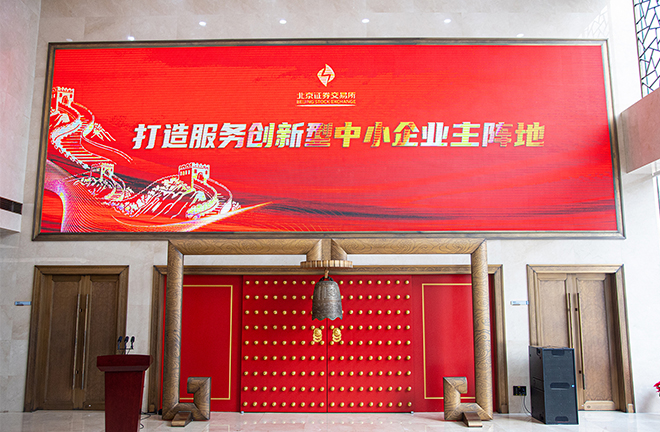Improving macro adjustments to boost confidence of micro entities

The Beijing Stock Exchange facilitates the flourishing of SMEs. Photo: CFP
China’s macroeconomic status has been the result of many microeconomic entities’ participation in socioeconomic activities, based on their own optimal decisions, within an established macro environment. Micro entities usually take the macro environment as exogenously given, and often believe that their own behaviors can hardly change the entire macro environment. When the economy encounters big negative shocks, decisions made by micro entities based on the unfavorable macro environment may form a negative feedback mechanism, exposing the economy to large fluctuations. Macro policies bear the responsibility of stabilizing the economy.
Liquidity trap
In the 1930s, the West experienced the most serious economic crisis since the birth of capitalist society, and the Keynesian theory, which emphasized government interventions, was gradually formed in the crisis-aversion process. Since then, government interventions have been considered the decisive force for breaking micro entities’ negative feedback mechanisms and resolving their predicaments.
When the interest rate falls to a certain level, most people prefer to hold cash rather than bonds. In these cases, the monetary authority loses its effective control over the interest rate. This situation is called a “liquidity trap.”
When there are more ways to allocate assets in the market, with the increasing openness of the financial industry, a “liquidity trap” within a country might take shape even when the interest rate is relatively high.
Expansionary fiscal policy
To escape from the “liquidity trap” and to allow capital released by an easy monetary policy to flow into the real economy, so as to effectively promote current consumption and investment, and enhance the endogenous impetus of economic growth, an expansionary fiscal policy is needed to drive the real sector to improve the rates of return, and the growth of residents’ income, to reverse micro entities’ downward expectations of the economy.
At present, China’s economy is suffering from the supply shock caused by the rising prices of raw materials upstream, as well as the impact of contracting overseas demand and falling domestic demand. The expected return on investment by brick-and-mortar enterprises and the expected income of residents is decreasing. In this scenario, it is necessary to realize the fiscal expansion as a first step to drive the expected return of enterprises and the expected income of residents to rebound, to break the predicament faced by micro entities, and to enhance the endogenous momentum of economic growth.
Coordinating monetary policy
In the context of an easy monetary policy’s limited influence on increasing employment and the real output, the monetary policy is not inactive. At this time, more attention should be paid to changes in asset prices. Because when the economy suffers negative shocks, a faster decline in asset prices may trigger a “financial accelerator” effect, amplifying the impact of shocks to the real economy.
Macro policy adjustments
In order to achieve annual socioeconomic development goals, we should improve macro policy adjustments, effectively control key risks, and stabilize the macroeconomic market.
First, it is advisable to issue special treasury bonds, increase the expansion of fiscal policies, and drive the growth of residents’ incomes and the expected income of market entities. Second, greater attention should be paid to the risks that may be brought about by the rapid decline in asset prices, to prevent the formation of a “financial accelerator” effect. Third, it is crucial to focus on the use of structural policies to improve the effectiveness of macro policies. Fourth, continuous improvement in the confidence of micro entities is the key to reversing an economic downturn.
China’s responses to the Asian Financial Crisis in 1997, the Global Financial Crisis in 2008, and the issuance of special treasury bonds in 2020 to deal with the impact of the COVID-19, have fully demonstrated the effectiveness of the government’s macro policy interventions. The COVID-19 must be controlled, the economy stabilized, and development safeguarded. Through the effective implementation of macro policies, which stimulate the vitality of each micro entity, it can be expected that China’s economy will continue to pursue progress while ensuring stability.
Yang Yaowu (associate research fellow) and Zhang Ping (research fellow) are from the Institute of Economics at the Chinese Academy of Social Sciences.
Edited by ZHAO YUAN

 PRINT
PRINT CLOSE
CLOSE